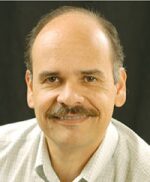In the kingdom of wet completion, Petrobras has just installed its first tension-leg wellhead platform, in the field of Papa Terra in 1190-m-deep water. It is going to be a revolution regarding how to operate such an installation and be able to produce the heavy oil of Papa Terra (14–17°API). For many years, Petrobras engineers have being analyzing the use of a tension-leg platform or a spar as a solution for their field developments, and, finally, it came through. I strongly believe that all the lessons learned from installation (completed by now) to operation will result in much better solutions for the future of dry completion in our industry. In past JPT reviews, I wrote about the effect for field developments of the first floating production, storage, and offloading vessel in the Gulf of Mexico installed by Petrobras in Cascade and Chinook. And I believe that, once again, Petrobras is creating the same impact now in its own backyard.
In February 2014, Petrobras reached a production of 400,000 B/D in the Brazilian presalt 8 years after of the discovery of the first field. In this presalt cluster, the consortium led by Petrobras, including Total, Shell, CNOOC, and CNPC, will be developing the Libra field, one of the biggest discoveries in ultradeep waters in the world. The estimated reserves of 8 billion to 12 billion bbl of recoverable oil will demand a great amount of resources to cope with the challenges of developing this gigantic field. If you are an engineer looking for an opportunity for technological growth and learning experiences, do not miss this chance.
Lately, I have been reading a lot about the shale gas/oil developments in the United States, and I am amazed to see the forecasts showing that this gas/oil production will lead the United States to be self-sufficient by 2020 and a net exporter by 2030. It is a good example of what technology can do for you when combined with entrepreneurship. I have been reading also that unconventional oil and gas has taken money out of deepwater developments and that some majors have deferred their projects because of economics compared with tight oil projects. Equilibrium will come, and I believe both will contribute to our oil/gas supply.
This Month's Technical Papers
Multiple Factors Drive Decisions Toward Wet or Dry Trees in Deepwater Projects
Heavy-Oil Papa-Terra Project Uses Innovative Solutions in Deep Water
Angola Ultradeepwater Completion Designs Deliver Prolific Production
Dual-Gradient Drilling in Ultradeepwater Gulf of Mexico
Recommended Additional Reading
SPE 166337 Water-Depth Record for Electric-Line Operations—Retrieving Asphaltenes With Riserless Light Well Intervention by Steven Ashcraft, Anadarko, et al.
OTC 24529 Roncador Module IV: A Successful Case in Heavy-Oil Projects In Ultradeep Water by E. Bordieri, Petrobras, et al.
OTC 24508 Scale Management in Deep- and Ultradeepwater Fields by M.C.M. Bezerra, Petrobras, et al.

Jacques Braile Saliés, SPE, is drilling manager for Queiroz Galvão Exploration and Production. His 30-year career at Petrobras was spent in various engineering and management positions in exploration and production, including coordinating Petrobras’ Technological Program on Ultradeepwater Exploitation Systems (2003–05) and serving as drilling manager for Petrobras America (2005–09) and as well-operation manager for Petrobras International (2009–11). Saliés retired from Petrobras in 2011. He holds a BS degree in mechanical engineering from the Military Institute of Engineering in Brazil, an MS degree in petroleum engineering from the Federal University of Ouro Petro in Brazil, and a PhD degree in petroleum engineering from the University of Tulsa. Saliés also served several terms on the SPE Board of Directors for the Brazil Section and serves on the JPT Editorial Committee. He has authored or coauthored several papers on drilling and subsea technology.
